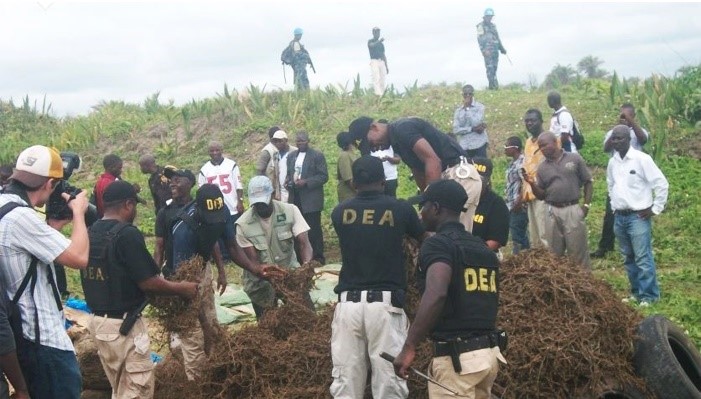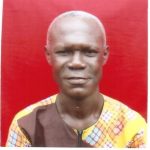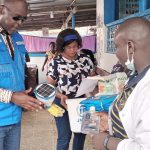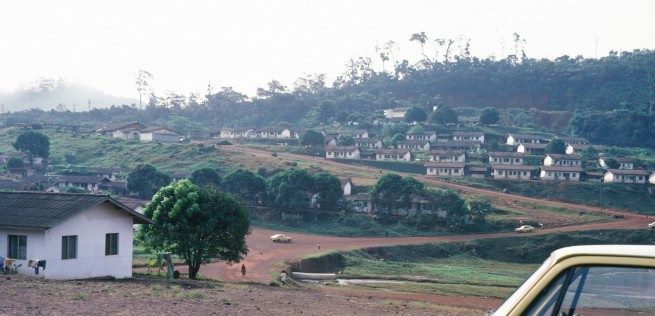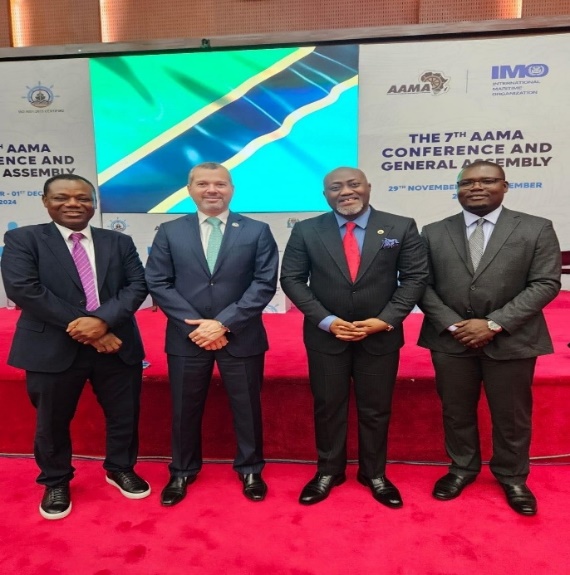Drugs are chemically or naturally derived substances that affect the physical and mental states. It is sought out for recreational, nonmedical use due to its psychoactive effects, and may also be illegal; writes Ojuku Silver-tongue Kangar, Jr.
Drug is a global concern, but in Liberia it needs emergency holistic approach as its proliferation is on the rise–damaging future leaders and promoting societal crimes.
These drugs—heroin, cocaine, hallucinogens, crack, amphetamines, marijuana, alcohol, inhalants, prescription drugs, and kush—are damaging Liberia’s youthful population, according to Du-Port Road Community’s Liberia Drug Enforcement Agency (LDEA) Commander, Moses Bah. As a result, they dwell in unfinished buildings and cemetery, smoke dead bodies’ bones mixed with drug, among others.
The Liberia Drug Enforcement Agency (LDEA) is clothed with the authority to combat illicit drug.
According to Commander Bah, he disguised himself for five years behind the former 704 Entertainment Center before he was discovered by the ghetto boys as a LDEA officer.
“In security, safety comes first. I did it for my life and for my family’s safety,” Commander Bah said, stating that his wife established their residence near a ghetto and moved there with their children while he was studying abroad, until he came and joined them.
“With the help of my men and the joint security, we fought the ghetto guys from 4:00 a.m. to 10:00 a.m. and we moved them and established the LDEA’s Du-Port Road office there,” Bah said, as he publicized that he was stoned and stabbed by drug users while raiding them.
Seeing the youthful population damaging themselves with illicit drugs, especially with “Kush”, which the Egyptians allegedly used for embalmment, troubles commander Bah, and he calls on lawyers, religious leaders, the government, civil society, and so on, to declare the drug distress an emergency.
“Kush is dangerous, [so much so] that when they take it in it makes some of them to run hastily from Paynesville to Duala community without anyone chasing them. It can spend several hours in an individual and controls his movement,” Bah said in a sorrowful tone. “To keep talking the drug in, it makes them brave to steal, attack people for their valuables.”
Due to the proliferation of illicit drug addicts and ghettos in Montserrado County, its environs and nationwide, citizens’ free night movement has all but stopped, compelling them to return home immediately when it is 6:00 p.m. and going to 7:00 p.m.
The drug epidemic is not discriminatory here; it affects the well-off’s children, the poor, religious leaders’ children and government officials’ children.
However, at the LDEA the drug epidemic battle is challenged in several ways: the LDEA lacks manpower, logistics, motivating salary structure, among others.
Narcotic drug combat is costly and the government impairs LDEA’s scope of operation with little budget, which limits the agency’s robust mission to clampdown on importers, dealers and users nationwide.
Community dwellers, who should have served as whistleblowers for drug being on the rampage and it negatively destroying potential youths of Liberia are dealers and users.
Pipeline Wein Town, Barnersville, King Gray, Redlight communities and several counties are the hub of illicit drug transaction, according to a source at the LDEA’s office at Fiamah community.
However, all eyes are on the in-coming Unity Party administration to clampdown on drug dealers, importers and users as it accuses the CDC-led government for smuggling drug, especially kush, which is making several youths and adults useless and committing crime.
During the 2023 election campaign, the Unity Party alleged that the CDC administration imports substances that contributes to many youths being abnormal and becoming carefree in the society.
The Unity Party’s accusing finger pointed at the CDC-led government may have magnitude because the 54th legislature passed the new amended drug law, and it was subsequently signed into law by President George M. Weah in August 2023, but it lacks implementation. The public consequently refer to it as a toothless bulldog
The substance abuse law provides penalties for drug possession or use, supply, trafficking, production, an alternative to incarceration, harm reduction, public health and human rights, confiscation of properties, among others, and will also reduce the number of disadvantaged youths in the streets.
The law, which is on the book without implementation, has caused the substance abuse to spread like wild fire, frustrating parents and guardians because their children keep falling prey to narcotic drugs.
As it is, Liberians are unreceptive to seeing their children go astray completely, and have called for all hands on deck to tackle the illicit drug abuse nationwide.

